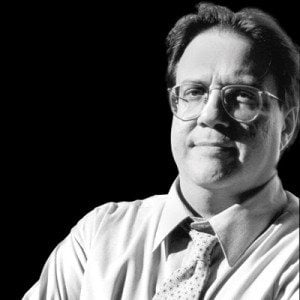The Soul of San Antonio

Sometimes, when the clock pushes toward 2 a.m. in a dark joint in San Antonio, you don’t have to look hard to feel the spirit of the late Doug Sahm—the brilliant Neal Cassady of Texas music, always on the move, man—floating through the smoky light. Maybe the best time for a Sahm séance is when the legendary West Side Horns, his old musical colleagues, reassemble and play for ageless hippies, homeboys, and early-morning philosophers, all of them out to take one last sip from the soul chalice Sahm filled with a homegrown blend of Texas music.
During his life, Sahm had an uncanny ability to absorb local flavors and make them his own: the swing, rags and polkas from the immortal Adolph Hofner. The aching gritos echoing inside Lerma’s on Zarzamora Street. The doo-wop rock of Rudy and The Reno Bops. The blues chants that bounced off the floorboards of Mr. Johnny Phillips’ Eastwood Country Club. Sahm was as a master alchemist who understood how rich Texas music was—and how so much of it was tied by fate, history, and poetry. It was one big, underappreciated gumbo-menudo for him. So rich, so deep, that every ingredient should be seen as a necessary link in the cosmic continuum—and treated with the same respect as the bedrock flavors of New Orleans.
Jan Reid’s biography, written with Sahm’s son Shawn, is the first full-length portrait of a tripped-out illuminatus who had a reverence for his region’s musical history, as well as a full comprehension of the crossroads where those sounds were married. The book definitively underscores how Sahm’s glorious originality stemmed from keeping so many traditions alive, from focusing respectful attention on the masters who had been forgotten, and from making everybody at the party join the band. He suggested that there was utter, joyous magic that connected the bajo sexto to his bluesy Telecaster, and that connected his pedal steel guitar to the full-throated roar from a Texas tenor solo by the late Rocky Morales.
An intuitive savant, it all made sense to Sahm—even if he struck some strangers as edgily unhinged, talking a mile a minute. “Part of the difficulty in understanding Doug was that your mind had to register and process as fast as he talked,” the authors write. It was that way when you tried to call him on the phone. He yakked like a triple-espresso Beat poet—not someone slowed down by the ton of good weed he smoked. He also wasn’t, ahem, really into a lot of the protocol and compromises that define what passes for the “modern music business.” His famous answering machine message basically told callers that if you weren’t calling him to talk about baseball or Guitar Slim (two obvious passions), then you might as well forget it.
Texas Tornado hits the ground running as briskly as Sahm did, almost until he died at 58 on a road trip to New Mexico. The book barrels through his formative years in the San Antonio musical scene and heads for the meat and machinations of his long performing career. With Janis Joplin and Johnny Winter, he exported the big Texas beat to the formative ‘60s and ‘70s scenes in California and New York, and blew the minds of admirers like Bob Dylan and Jerry Wexler. Sahm had once gone into the Big Pop Music wonderland—scoring a top-20 hit with “She’s About A Mover” while being packaged as a faux British band called The Sir Douglas Quintet. Yet he emerged as a stoned immaculate, Big Red sipping, soul brother hippie, right in the heart of tough Texas. The book becomes a convincing roadmap for Sahm to be voted into the Rock and Roll Hall of Fame—and, hell, plenty of other halls of fame. The authors wryly note that Sahm “had refuted the notion that persons of any single political ideology and affiliation could monopolize country-western.”
If you look closely around some corner of Austin or San Antonio—and on the occasional unpaved road that still snakes beside Boerne or Bandera—you might see a bumper sticker that says the driver is a “Doughead.” It’s like a good cult, if there is such a thing—so give the driver the peace sign when you see him. To this day, to hear Doug Sahm—to really listen to him—is to get Texas at the most soulful level possible.
Contributing writer Bill Minutaglio is a journalism professor at the University of Texas at Austin. His latest book is In Search of the Blues: A Journey to the Soul of Black Texas.


